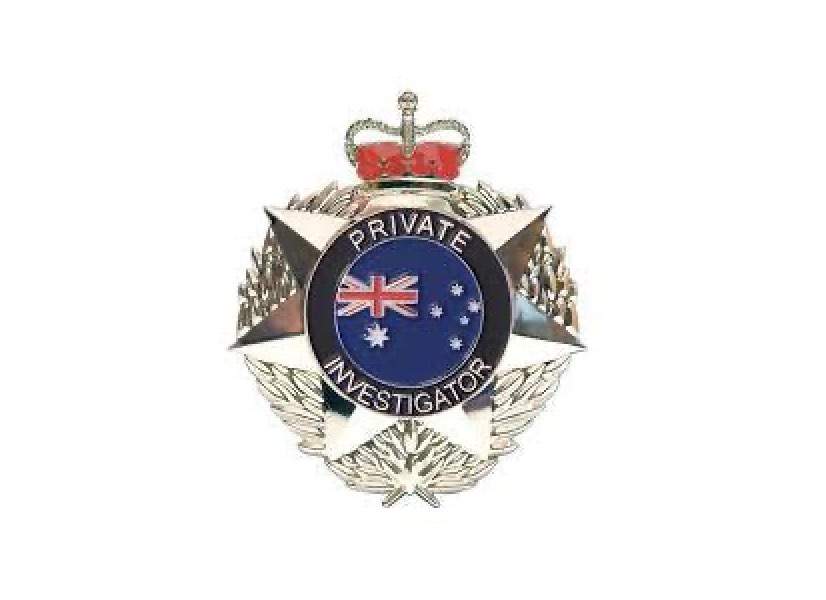Have you ever needed to locate someone in Australia but felt overwhelmed by where to start? Whether you’re reuniting with a long-lost friend or conducting a background check, this guide will navigate you through the process. You’ll learn about the legal framework in Australia, the contrast between traditional and modern search methods, and how to effectively use online tools and databases for a “people search Australia”.
Additionally, we’ll discuss when it might be time to engage a private investigator. By reading on, you’ll gain practical strategies for a successful “Australia people lookup” while considering privacy laws. This content will empower you with the knowledge to conduct a “find people search Australia” efficiently and responsibly.
Understanding the Legal Framework of Australia
When you’re trying to locate a person’s address in Australia, it’s essential to understand the country’s legal framework. Australia’s laws protect personal information, so you must follow specific procedures to find someone legally. This ensures respect for privacy and compliance with national regulations.
As you seek to find a person in Australia, consider the unique cultural significance of Aboriginal Australians and Torres Strait Islanders. Their communities may have different protocols for sharing information, which you should honor and observe. This cultural sensitivity is crucial in your search.
Before you begin your search, familiarize yourself with the legal pathways available: To illustrate the steps you need to take:
| Step | Action | Consideration |
| 1 | Consent Request | Seek permission from the individual or a legal authority. |
| 2 | Search Databases | Use authorized public records and databases. |
| 3 | Contact Authorities | If necessary, involve law enforcement or professional services. |
| 4 | Cultural Protocols | Engage with local community leaders, especially in Aboriginal and Torres Strait Islander communities. |
Remember, while you aim to find a person in Australia, it’s vital to adhere to the country’s privacy laws and regulations. By doing so, you ensure that your search is both respectful and lawful, maintaining the integrity of your efforts.
Why You Might Need to Find Someone?
There are many reasons why you may want to find someone in Australia. These can range from personal, like wanting to connect with an old friend or family member, professional reasons like tracking down a past colleague or business contact, or even for legal reasons like serving court papers.
| Personal Reasons | Professional Reasons | Legal Reasons |
| Reuniting with estranged family | Finding an old workmate | Serving court papers |
| Finding an old friend | Tracking down a potential client | Tracking down debtors |
Traditional Methods of Finding a Person

If you’re in Canberra and seeking to locate someone, start with the local directories and community boards. These traditional resources remain a practical starting point for a person search in Australia, often listing contact details and addresses.
When your search extends to major cities like Sydney, consider using a people finder Australia service. These services compile public records and electoral rolls, providing a centralized resource for finding individuals across urban and rural areas.
For a more targeted approach, you might visit libraries or archives of ‘The Australian’ newspaper. Historical editions can offer clues about a person’s past activities or whereabouts, especially if they’ve had public achievements or notices:
| Resource | Type of Information | Relevance |
| Local Directories | Contact Details | High for immediate locality |
| People Finder Services | Public Records | High for nationwide search |
| ‘The Australian’ Archives | Historical Notices | Medium for background search |
Lastly, don’t overlook the value of word-of-mouth in smaller communities. A person search in Australia can often benefit from the local knowledge and networks, particularly in less populated areas where personal connections are strong.
Modern Methods: Using the Internet and Social Media Platforms

Turning to the internet for a people search in Australia can be highly effective. You can start with a people search engine Australia-specific, which scours various databases to provide you with potential contact information and addresses.
Social media platforms are another powerful tool in your search: Many individuals have a digital footprint on sites like Facebook or LinkedIn. These platforms allow you to search by name, location, and even mutual connections, which can lead you to the person you’re looking for:
-
Use the search function on social media platforms.
-
Filter results by location, workplace, or education.
-
Reach out through direct messages or mutual contacts.
Remember, when using these modern methods, respect for privacy remains paramount. Ensure you approach any contact with courtesy and explain your reasons for reaching out, keeping in line with ethical standards.
For a more comprehensive search, combine both traditional and modern techniques. This blended approach increases your chances of success in locating someone in Australia, whether they’re in a bustling city or a remote town.
How to Use Specific Search Tools and Websites

There are several websites and tools available for Australia people lookup. These include:
-
Public record websites
-
Commercial databases
-
Australia’s electoral roll search
-
Australia White Pages
-
Australia Yellow Pages
Each provides a different level of detail and requires different bits of information to be successful, so patience is key here.
Hiring a Professional Investigator

If your efforts to find a person in Australia have been unsuccessful, you might consider hiring a professional investigator. These experts have the skills and access to resources that can significantly increase the likelihood of locating someone. They operate within the legal boundaries and are experienced in handling sensitive information.
When selecting a professional investigator, ensure they have a valid license and a strong track record. This step is crucial: a reputable investigator will adhere to Australia’s privacy laws and conduct a thorough search without compromising legal standards.
Professional investigators use a variety of tools and methods to track down individuals: These include surveillance, interviews, and advanced database searches. To understand the process, here’s what you can expect:
-
Initial consultation to discuss your needs and the specifics of the case.
-
Strategic planning of the investigation based on the information provided.
-
Execution of the search using specialized techniques and tools.
-
Regular updates and a final report detailing the findings.
Remember, while hiring a professional may incur additional costs, the expertise and efficiency they bring to your search can be invaluable. They can navigate the complexities of finding a person in Australia, from urban centers to remote outback locations, ensuring a comprehensive search is conducted.
Tips for a Successful Search
To enhance your chances of successfully finding a person in Australia, start by gathering as much information as possible. Details such as full name, previous addresses, and known associates can narrow your search and lead to more accurate results.
Consider timing when reaching out to potential contacts or using search services. People are more likely to respond or be available during typical daytime hours, so plan your inquiries accordingly to improve response rates.
Keep a detailed record of your search efforts, including the databases and tools you’ve used. This log will help you avoid duplicating efforts and can serve as a valuable reference if you need to escalate your search or seek professional assistance.
Stay patient and persistent in your search. Finding someone in Australia might take time, especially if you’re dealing with common names or limited information. Regularly revisit and update your search strategies to adapt to new leads or changes in circumstances.
Privacy Considerations
When you’re on a mission to find a person in Australia, it’s imperative to prioritize privacy. Australian law safeguards personal data, and any search you conduct must respect these legal boundaries. This means obtaining consent where necessary and using only legitimate means to gather information.
As you navigate through various resources, keep in mind that unauthorized access to someone’s personal details can have legal repercussions. It’s essential to use public records and search tools that are designed for public access, ensuring your search remains within the scope of the law.
Transparency in your intentions is key: If you reach out to someone as part of your search, be upfront about why you’re looking for them. This not only builds trust but also aligns with ethical practices, reinforcing the legitimacy of your search efforts:
| Step | Action | Outcome |
| 1 | Obtain Consent | Ensures legal compliance |
| 2 | Use Authorized Tools | Respects privacy laws |
| 3 | Communicate Transparently | Builds trust and ethical practice |
Lastly, consider the sensitivity of the information you uncover. Handle personal details with care and only share them with parties who have a legitimate need to know. By doing so, you maintain the privacy of the individuals involved and uphold the integrity of your search process.
Conclusion
In your quest to locate someone in Australia, it’s crucial to navigate the search with a deep respect for privacy laws and cultural sensitivities. Combining traditional methods with modern digital tools, such as specialized search engines and social media, enhances your chances of success while adhering to ethical standards. If challenges persist, enlisting a licensed professional investigator can provide expertise and access to advanced resources within legal boundaries. Ultimately, a methodical and respectful approach ensures a lawful and effective search, safeguarding the privacy and trust of all involved.












